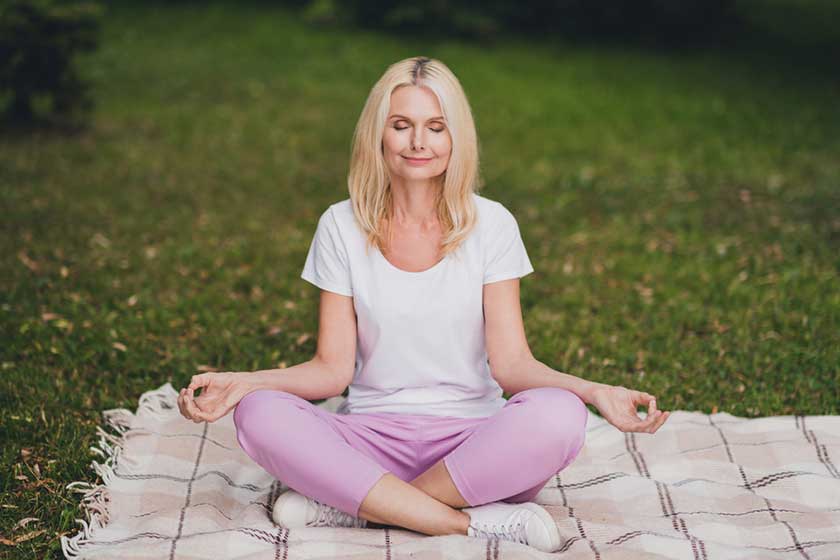Meditation has increasingly become a recommended practice for older adults, providing numerous health benefits that enhance the quality of life. If your parents or elderly loved ones have not yet discovered the advantages of meditation, now is a perfect time to start. Here, we have listed the benefits of meditation for seniors and offer tips on how to encourage them to embrace this practice.
Health Benefits of Meditation
-
Enhancing Mental Clarity and Emotional Health
Meditation offers significant benefits for mental and emotional health, which is particularly important as your loved ones age. Regular meditation can lead to improved focus and clarity, reducing the feelings of confusion and overwhelm that sometimes accompany aging. Additionally, it fosters a greater sense of calm and resilience against stress, helping to manage anxiety and depression.
This practice also enhances emotional regulation, making it easier for your loved ones to cope with the changes and challenges that often come with older age. By maintaining a regular meditation schedule, they can improve their overall mood and outlook on life.
-
Physical Health Improvements
Meditation is known to have a positive impact on various aspects of physical health, which is crucial for maintaining independence in later years. It can help lower blood pressure, reduce chronic pain, and improve sleep patterns, all of which are common concerns among older adults. The relaxation techniques learned through meditation also contribute to better cardiovascular health.
These physical benefits are not only important for your loved ones’ health but also contribute to their ability to engage more fully in daily activities and enjoy a higher quality of life.
-
Social Engagement in Retirement Communities
Incorporating meditation into the routine of those living in a retirement community can also provide a valuable social outlet. Many communities offer group meditation classes, which can be a great way for your loved ones to meet new people and engage in a shared activity. These classes provide a sense of community and support, enhancing the social lives of participants.
Participating in group meditation can also help your loved ones feel connected to a larger community, which is important for their emotional well-being and can combat feelings of loneliness or isolation.
Strategies to Encourage Meditation Practice
-
Educating About the Benefits
One effective way to encourage your parents or older loved ones to start meditating is to educate them about its benefits. Discuss how meditation could specifically help them with issues they are currently facing, whether it’s sleep disturbances, high blood pressure, or stress. Providing articles, books, or videos on meditation can also help pique their interest.
-
Starting with Simple Techniques
When introducing meditation, it’s important to start simple. Guided meditations or mindfulness practices that focus on breathing can be a great way to begin. These methods are not intimidating and can be practiced for just a few minutes a day to build a habit.
-
Incorporating Technology
Many older adults are becoming increasingly comfortable with technology. Introducing them to meditation apps that offer guided sessions can be another engaging way to get them started. These apps often have sessions varying in length and focus, providing options that can easily fit into their lifestyle.
Empowering a Mindful Lifestyle
Adopting meditation can be transformative for your loved ones, helping them to lead a more peaceful and fulfilling life in their golden years. By following these strategies, you can play a crucial role in this positive change.
Encouraging your parents or older loved ones to embrace meditation can lead to significant improvements in their mental, emotional, and physical health. By understanding the benefits and gently introducing them to the practice, you can help them open the door to a more mindful and serene retirement lifestyle. With patience and support, meditation can become a rewarding part of their daily routine, enriching their retirement years.







